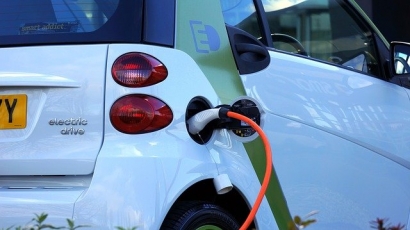
San José Clean Energy, Silicon Valley Clean Energy, Peninsula Clean Energy, and Central Coast Community Energy are leading the way toward achieving the goal for electric vehicle charging infrastructure that is available readily for users of all incomes throughout their communities.
“Together, our organizations are supporting the deployment of thousands of chargers in our communities which will transform the EV-infrastructure landscape across our region,” the four CCAs said in a joint statement. “We know that transportation – mainly cars and trucks on our roadways – is the biggest generator of California’s climate change-inducing greenhouse gas emissions. To be serious about addressing emissions, we must aggressively build the charging infrastructure needed to support EVs in every community, across all income levels.”
The CCAs are contributing millions of dollars to amplify the impact of state funding, and when combined with California Electric Vehicle Infrastructure Project (CALeVIP) funds, the overall investments total $65 million. The California Energy Commission’s (CEC) Clean Transportation Program funds CALeVIP to support “a streamlined process for getting chargers installed to fill the significant gaps in charging availability.”
The Peninsula-Silicon Valley Incentive Project will bring $55 million to the region and pay for a significant amount of installing new EV charging. The funding is distributed to each CCA service area and the local partnerships help deploy charging infrastructure in areas with the greatest need. The project also includes two municipal partners with the City of Palo Alto Utilities and the City of Santa Clara’s Silicon Valley Power.
The Central Coast will benefit from a collective $9.2 million in funding through the Central Coast Incentive Project totaling $7 million for the Monterey Bay Region, and a $2.2 million investment by 3CE to fund zero-emission school buses.
Peninsula Clean Energy in September launched its EV Ready Program that includes an additional $16 million in incentives, technical assistance and workforce development to expand electric vehicle charging infrastructure at workplaces, multi-family housing complexes, and public sites. These funds supplement the $12 million for San Mateo County that is included in the CALeVIP Peninsula Silicon Valley Incentive Project. The EV Ready Program plans to install 3,500 charging ports across San Mateo County in the next four years, including over 1,300 ports at multi-unit dwellings to address the massive gap in charging accessibility at apartments. Peninsula Clean Energy also recently expanded its electric vehicle rebate offering residents $1,000 rebates for new fully electric vehicles and $700 for plug-in hybrids.
San José Clean Energy in August launched its Drive Electric program where residents can take advantage of extra discounts on EVs. San José partnered with five local dealerships to offer up to $3,000 in discounts on seven EV models now through October 31. In partnership with Peninsula Family Service, SJCE’s DriveForward program offers free workshops and one-on-one counseling to support moderate to low-income households with purchasing a new or used EV. The Peninsula-Silicon Valley Incentive Project will bring $14 million to San José ($4 million from SJCE and $10 million from the CEC) and will double the current level of public EV infrastructure in the city. In addition, at least 25 percent of the funding will be invested in low-income and disadvantaged communities.
Central Coast Community Energy (3CE) has made $7 million available for the installation of electric vehicle charging station in late 2019 with the Central Coast Incentive Project (CCIP). The combined funding between 3CE and CALeVIP totals $7 million. The Central Coast Incentive Project will support up to 600 Level 2 chargers and 60 DC fast chargers across the Monterey Bay region and the available funding is nearly reserved with 36% of reserved funding earmarked for disadvantaged communities. The Central Coast Community Energy board also approved funding for a range of electrification programs, including $2.2 million for zero-emission school bus grants in partnership with the local air districts across the Central Coast.
Silicon Valley Clean Energy’s 2019 EV infrastructure plan assessed and prioritized EV charging needs across their communities. The agency is currently deploying $8 million in EV charging initiatives, including $6 million toward CALeVIP which, combined with CEC funds, is a part of $12 million in local charging incentives – expected to directly support installation of over 1,000 Level 2 ports and nearly 100 DC fast chargers. SVCE’s initiatives include free technical assistance for multi-family and commercial properties and additional incentives for DC fast chargers located near designated clusters of multi-family housing. These efforts are supported by a growing collaboration of local EV leaders led by SVCE that focuses on solving key challenges, connecting with other stakeholders and sharing best practices. With additional funds, the agency is also running several innovative EV pilots that have the potential to unlock the value of managed residential charging and improve the business case for installing charging at multi-family properties.

